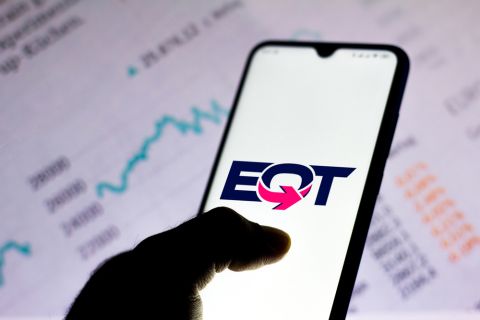Iran will continue to export oil despite U.S. sanctions, which Iranian President Hassan Rouhani said on Nov 19 are part of a psychological war doomed to failure.
By reimposing sanctions on OPEC’s third biggest crude producer, Washington wants to force Tehran to drop its ballistic missile programs, further curb its nuclear work and limit its support for proxy militias from Syria to Lebanon and Yemen.
“We will not yield to this pressure, which is part of the psychological war launched against Iran,” Rouhani said in a speech in the city of Khoy, broadcast live on state television.
“They have failed to stop our oil exports. We will keep exporting it ... Your regional policies have failed and you blame Iran for that failure from Afghanistan to Yemen and Syria,” he added, to chants of “Death to America!”
Rouhani said Washington lacked the necessary international support for its sanctions, and noted that it had granted temporary waivers to eight major buyers of Iranian oil.
“America is isolated now. Iran is supported by many countries. Except for the Zionist regime (Israel) and some countries in the region, no other country backs America’s pressure on Iran,” he said.
The European Union, France, Germany, Britain, Russia and China, participants with the U.S. in the 2015 deal that lifted sanctions on Iran in exchange for curbs on its nuclear program, have been trying to find ways to circumvent the U.S. limitations.
In particular, the EU has been trying to establish a Special Purpose Vehicle (SPV) for non-dollar trade with Iran.
But this has not stopped foreign businesses ranging from oil companies and trading houses to firms leaving Iran for fear of incurring U.S. penalties.
Washington has warned that European banks and firms who engage in the SPV will be at risk from the reimposed U.S. sanctions.
Iran has threatened to exit the deal if its economic benefits are not preserved, but Foreign Ministry spokesman Bahram Qasemi told a news conference that it remained “hopeful that the Europeans can save the deal.”
The SPV was conceived as a clearing house that could be used to help match Iranian oil and gas exports against purchases of EU goods, circumventing the U.S. sanctions, which are based on the global use of the dollar for oil trade.
The EU wanted to have the SPV set up by this month, but no country has offered to host it, six diplomats told Reuters last week.
“We expect EU to implement the SPV as soon as possible,” Qasemi said. “Iran adheres to its commitments as long as other signatories honor theirs.”
Iran’s deputy Oil Minister Amirhossein Zamaninia said “France might host the SPV”, the semi-official Fars news agency reported on Monday.
The French Foreign Ministry declined to comment. The Finance Ministry has said that all options are on the table for the SPV and that no decisions had been taken.
Recommended Reading
SLB’s ChampionX Acquisition Key to Production Recovery Market
2024-04-21 - During a quarterly earnings call, SLB CEO Olivier Le Peuch highlighted the production recovery market as a key part of the company’s growth strategy.
PHX Minerals’ Borrowing Base Reaffirmed
2024-04-19 - PHX Minerals said the company’s credit facility was extended through Sept. 1, 2028.
BP Restructures, Reduces Executive Team to 10
2024-04-18 - BP said the organizational changes will reduce duplication and reporting line complexity.
Matador Resources Announces Quarterly Cash Dividend
2024-04-18 - Matador Resources’ dividend is payable on June 7 to shareholders of record by May 17.
EQT Declares Quarterly Dividend
2024-04-18 - EQT Corp.’s dividend is payable June 1 to shareholders of record by May 8.





